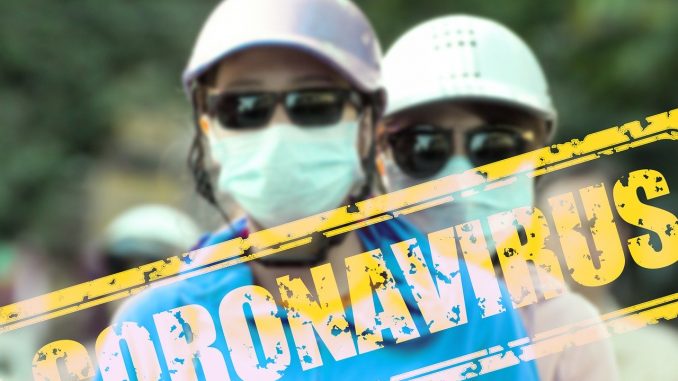
How does it get infected?
The new coronavirus infects through close contact with humans.
It is usually called drip infection and is based on the fact that someone who is ill has viruses in their airways and mucous membranes that end up on someone else. It can be infected, for example, by sneezing and someone standing close to you, or by having it on your hands and then getting on your face.
It is not clear how long the virus can survive on hard surfaces such as plastic or metal. Studies of other coronaviruses suggest that it may be a few hours to days under the right conditions.
What to do if you think you are infected?
If you have been in an area where there is a spread of infection and within 14 days after arriving home you start to feel feverish, cough and hungry you should call the healthcare. Do not go directly to reception, to avoid infecting others.
What treatment is given to the infected person?
There is no cure for the virus, but the care given treats the symptoms. However, most people recover themselves.
Several countries are working to try to develop vaccines for the new coronavirus. But it is still a long way to go that the vaccine is ready to be tested on humans. Usually, it takes around a year and a half to develop a vaccine.
For how long are you sick?
Most people who have mild disease symptoms (fever and cough) recover after two weeks, according to a report from WHO. For those who became seriously ill, it took between three and six weeks before they recovered.
Those who became seriously ill had difficulty breathing (rapid breathing and low oxygenation of the blood). Some of them needed intensive care, such as a respirator. These serious symptoms usually came a week after the illness.
What does it take for a person to be considered free of infection?
When you feel healthy, you should stay at home for at least another two days before going to work or school.
When a person has been symptom-free for seven days, the assessment is that you are free from infection and no longer infected.
How Many Get Healthy?
The vast majority of people become healthy, but a smaller proportion dies as a result of the disease. There is no information on the remaining chronic conditions.
It circulates various data on the number of recovered people, but given that the majority of those infected have mild symptoms and do not necessarily seek medical care, it is unclear what these figures are based on, according to the Public Health Authority.
How do you protect yourself and others from infection?
- Wash your hands frequently with soap and warm water.
- Cough and sneeze in the arm fold.
- Avoid touching eyes, nose and mouth.
- Avoid contact with sick people.
- Stay home if you’re sick.
Can one be infected by a person who has the virus but no symptoms?
According to the Public Health Authority, there is an international consensus that the epidemic is driven by people with symptoms of illness.
However, some who are ill have only mild symptoms, especially at the beginning of the disease. It is, therefore, possible to get infected by someone with mild cough and who does not feel ill.
The incubation period is usually estimated to be 2-14 days before the onset of disease and most people become ill after about 5 days.
How deadly is the virus?
Estimates are still uncertain. The WHO has previously reported a mortality rate of 3.4 percent, that is, a significantly higher mortality rate than in the case of regular seasonal flu. But most assessors consider the figure to be much lower, as the WHO has only been based on the number of cases diagnosed, many of which were taken care of in hospitals and did not include all those with only mild symptoms.
Experts believe the actual mortality rate is about one percent, or even lower, but with large variations depending on the age of those affected.
Who are most negatively affected?
Exactly what the risk groups are for the coronavirus and how high the mortality rate can be in them cannot be said yet, according to the Public Health Authority.
The largest study to date from China shows that older people, as well as people with cardiovascular disease, diabetes, chronic lung disease, and high blood pressure, are overrepresented among the severe cases.
How dangerous is it compared to regular flu?
They are similar in that both of a proportion of the sick can cause a very serious illness.
In contrast, covid-19 will affect significantly more people in a population where it spreads because no one in the population has been able to develop immunity. You will see more sick people and more people who need hospital care.
Does mouth protection help?
No, mouth protection does not protect anyone who is healthy against the new coronavirus, according to the Public Health Authority. On the other hand, those who are ill can to a certain extent protect their environment from the spreading of liquid particles during, for example, coughing and sneezing.
If you got the virus once, are you immune?
It’s unclear. The WHO has previously said that it is probably immune in any case for a short time.
Leave a Reply